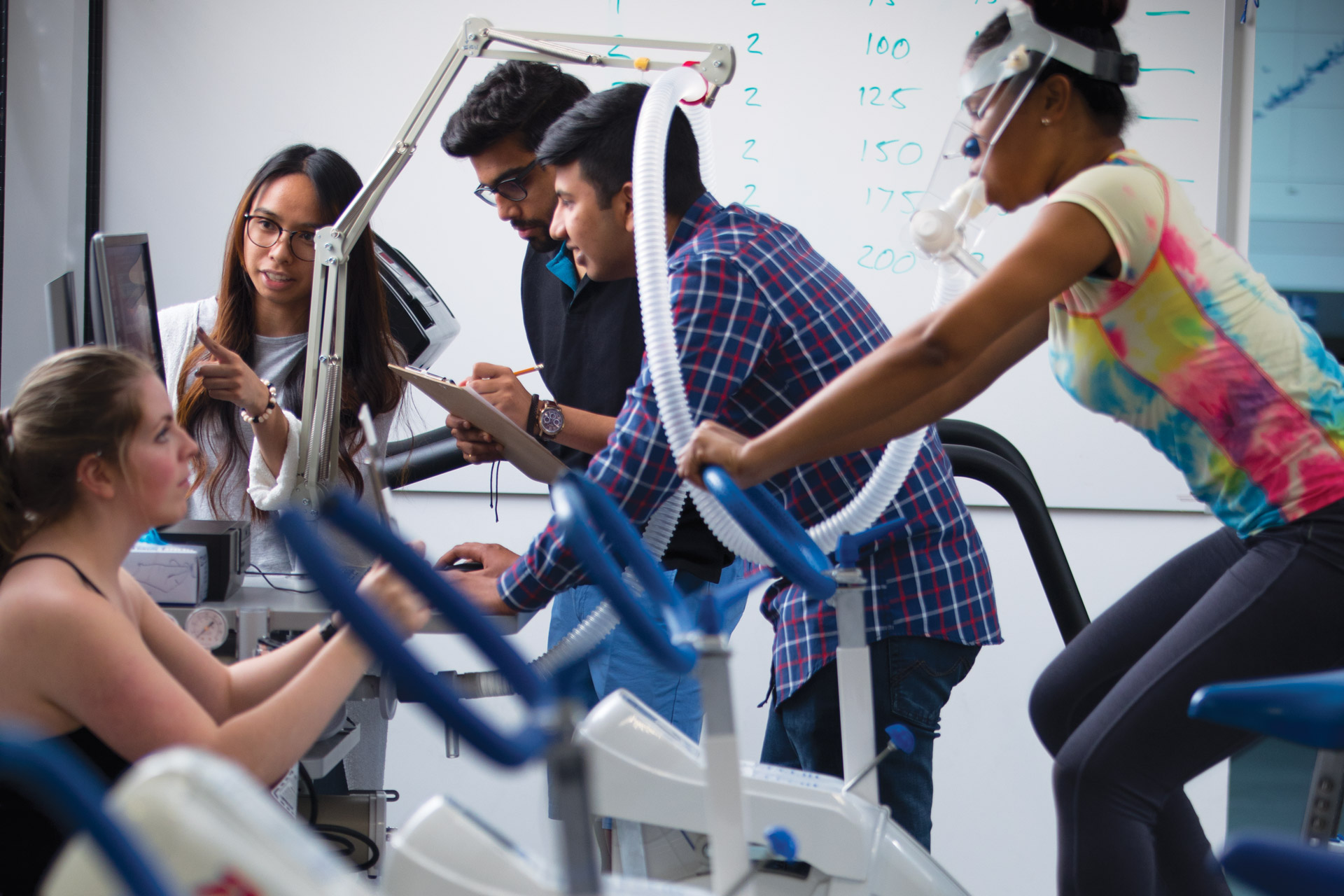Programs
Affective Science and Mental Health
Bachelor of Arts (Honours)
Bachelor of Science (Honours)
Affective Science and Mental Health
Students enrolled in the either the Bachelor of Science in Psychology or Bachelor of Arts in Psychology may choose to specialize in Affective Science and Mental Health. Both degrees will provide students with a core first year of courses, with their second year reserved for foundational psychology courses. Students will also be required to take a number of additional electives in their upper years of study.
Students will receive a solid foundation in research methods and statistics as well as highly marketable skills in a variety of tech-focused domains. The knowledge students will gain from this program will put them in a strong position for additional education or direct-to-work opportunities.
The Affective Science and Mental Health specialization will provide students with a targeted education pertaining to the psychological and neural mechanisms underlying emotion, and the manner in which these mechanisms contribute to mental health or mental illness.
The Affective Science and Mental Health specialization can be taken in the Bachelor of Science in Psychology and Bachelor of Arts in Psychology programs.
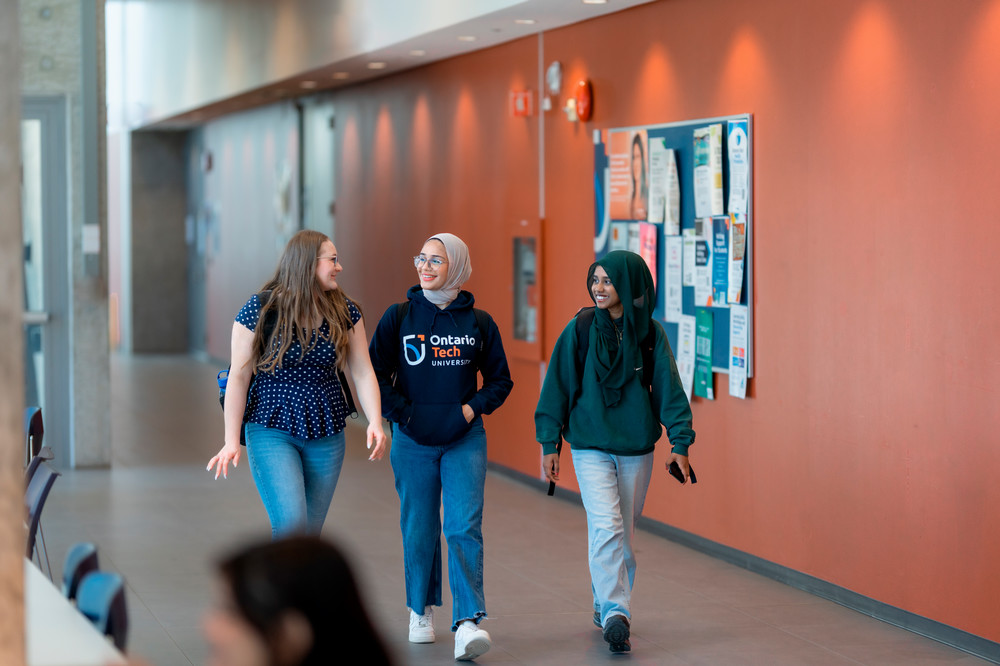
Applied Biotechnology

Bachelor of Science (Honours)
Bachelor of Science and Management (Honours)
Bachelor of Science with Co-op (Honours)
Applied Biotechnology
The Applied Biotechnology specialization can be taken within the Biological Science program.
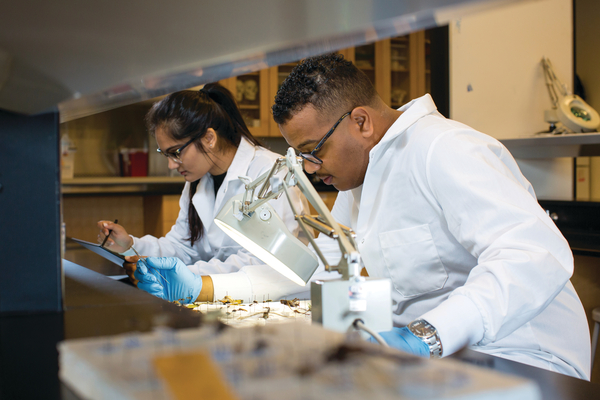
Biological Science

- Applied Biotechnology
- Biomedical Science
- Environmental Biology
- Marine Biology
Bachelor of Science (Honours)
Bachelor of Science and Management (Honours)
Bachelor of Science with Co-op (Honours)
Biological Science
- Customize your degree based on course interests or gain experience in a specialization.
- Lab-based course work with sessions kept small to promote hands-on experiential learning.
- Become proficient in experimentation and data analysis.
- Program contains all of the required courses needed for medical school and provides an excellent basis for preparing for the MCAT exam.
Biological Science program options
If you're interested in applying to the Biological Science program without co-op, apply via the Ontario Universities' Application Centre (OUAC) using OUAC code DSB.
If you're interested in applying to the Biological Science (Co-op) program, apply via OUAC code DCB.
You can pursue the Honours Biological Science program or choose to specialize in one of the following areas:
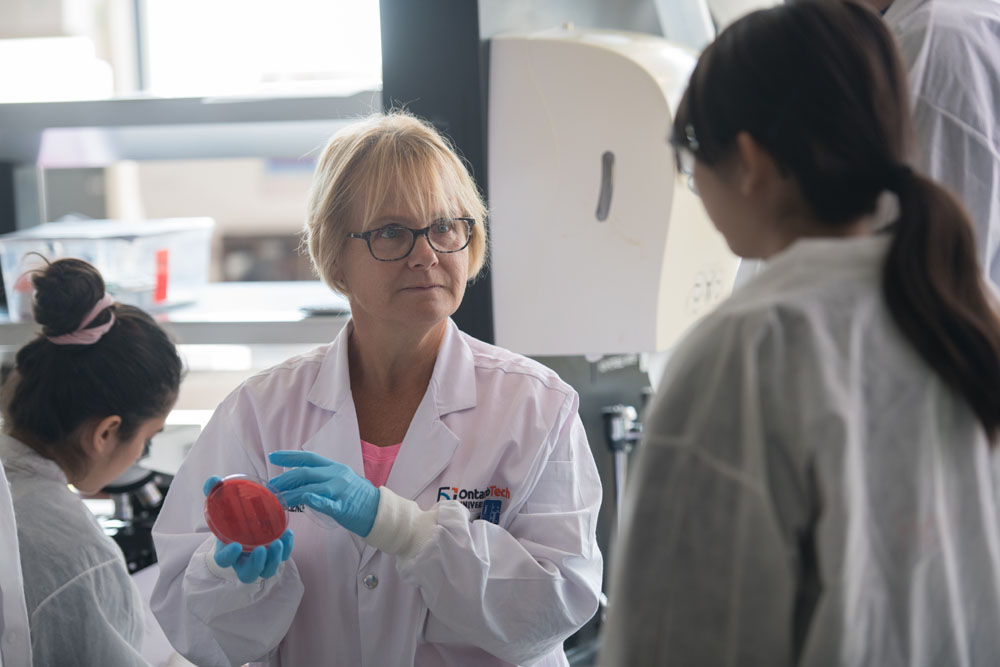
Specializations:
- Applied Biotechnology
- Biomedical Science
- Environmental Biology
- Marine Biology
Biomedical Science

Bachelor of Science (Honours)
Bachelor of Science and Management (Honours)
Bachelor of Science with Co-op (Honours)
Biomedical Science
This program provides an excellent basis for writing the Medical College Admission Test® (MCAT®) exam and for satisfying course requirements for applying to professional programs in medicine, pharmacy and dentistry.
The Biomedical Science specialization can be taken within the Biological Science program.
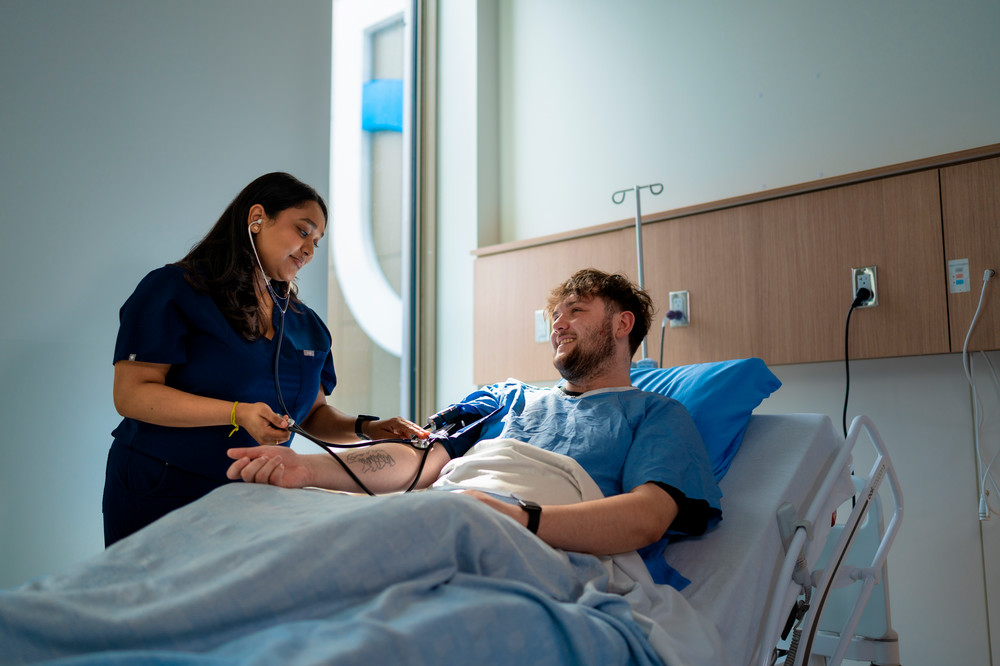
Biomechanics and Ergonomics
Bachelor of Health Science (Honours)
Biomechanics and Ergonomics
Biomechanics and Ergonomics focuses on the interaction between the human body and the physical world. Emphasis is placed on understanding how we can optimize human performance, reduce musculoskeletal injuries in the workplace and promote healthy return to work and sport. Graduates will be in a position to apply for their Associate Ergonomist (AE) designation, and can eventually apply to be a Canadian Certified Professional Ergonomist (CCPE) with additional work experience in the field.
The Biomechanics and Ergonomics specialization can be taken within the Kinesiology program.
Learning environment
You will have access to new, modern buildings, libraries and innovative labs including the Kinesiology Teaching Laboratory.
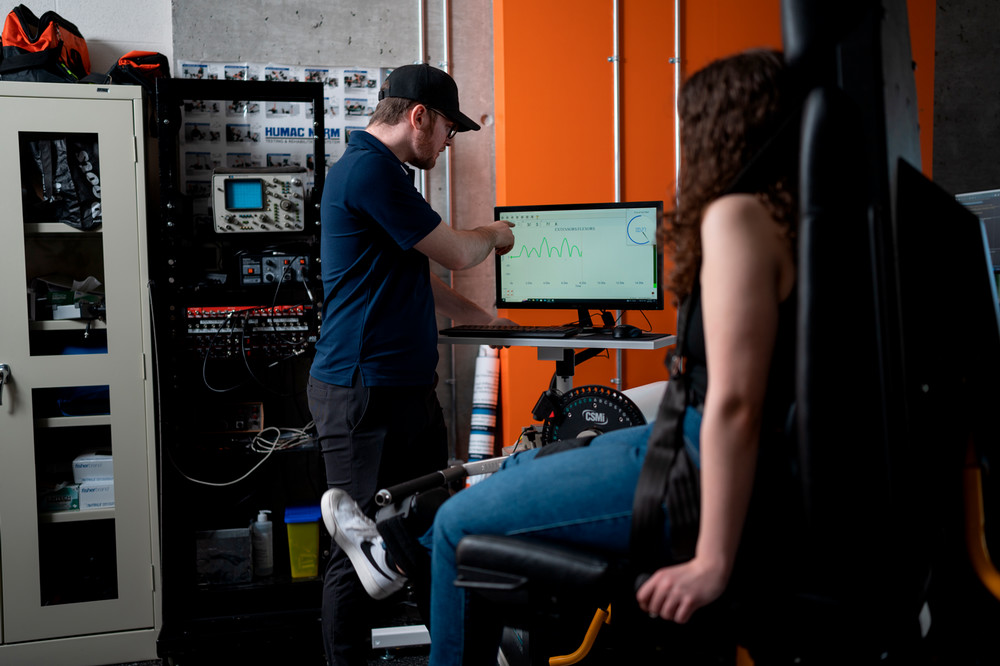
Chemical Biology

Bachelor of Science (Honours)
Bachelor of Science and Management (Honours)
Bachelor of Science with Co-op (Honours)
Chemical Biology
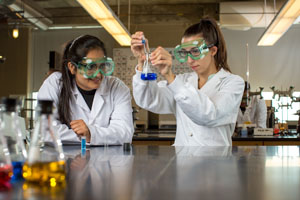
Cognitive and Brain Sciences
Bachelor of Arts (Honours)
Bachelor of Science (Honours)
Cognitive and Brain Sciences
Students enrolled in either the Bachelor of Science in Psychology or Bachelor of Arts in Psychology may choose to specialize in Cognitive and Brain Sciences. Both degrees will provide students with a core first year of courses, with their second year reserved for foundational psychology courses. Students will also be required to take a number of additional electives in their upper years of study.
Students will receive a solid foundation in research methods and statistics as well as highly marketable skills in a variety of tech-focused domains. The knowledge students will gain from this program will put them in a strong position for additional education or direct-to-work opportunities.
Students who choose the Cognitive and Brain Sciences specialization will experience an in-depth exploration of mental processes and neural mechanisms through cutting-edge research and hands-on learning. Students gain expertise in cognitive functions, brain imaging techniques and the application of cognitive theories to real-world problems.
The Cognitive and Brain Sciences specialization can be taken in the Bachelor of Science in Psychology and Bachelor of Arts in Psychology programs.

Developmental Psychological Science
Bachelor of Arts (Honours)
Bachelor of Science (Honours)
Developmental Psychological Science
Students enrolled in the either the Bachelor of Science in Psychology or Bachelor of Arts in Psychology may choose to specialize in Developmental Psychological Science. Both degrees will provide students with a core first year of courses, with their second year reserved for foundational psychology courses. Students will also be required to take a number of additional electives in their upper years of study.
Students will receive a solid foundation in research methods and statistics as well as highly marketable skills in a variety of tech-focused domains. The knowledge students will gain from this program will put them in a strong position for additional education or direct-to-work opportunities.
Students who choose the Developmental Psychological Science specialization will gain in‐depth knowledge into historical and contemporary trends regarding human development, from infancy and childhood, through adolescence, and into adulthood and gerontology.
The Developmental Psychological Science specialization can be taken in the Bachelor of Science in Psychology and Bachelor of Arts in Psychology programs.

Exercise Science and Rehabilitation
Bachelor of Health Science (Honours)
Exercise Science and Rehabilitation
Kinesiology focuses on human movement and optimizing performance and quality of life. This comprehensive program with a specialization in Exercise Science and Rehabilitation covers the behavioural, biomechanical, physiological and psychosocial aspects of human health and performance. Knowledge is applied to several settings including rehabilitation, adapted physical activity, sport, exercise and general health in people of varying abilities. You will be prepared for provincial and national professional examinations.
The Exercise Science and Rehabilitation specialization can be taken with the Kinesiology program.
Learning environment
You will have access to new, modern buildings, libraries and innovative labs including the Kinesiology Teaching Laboratory.
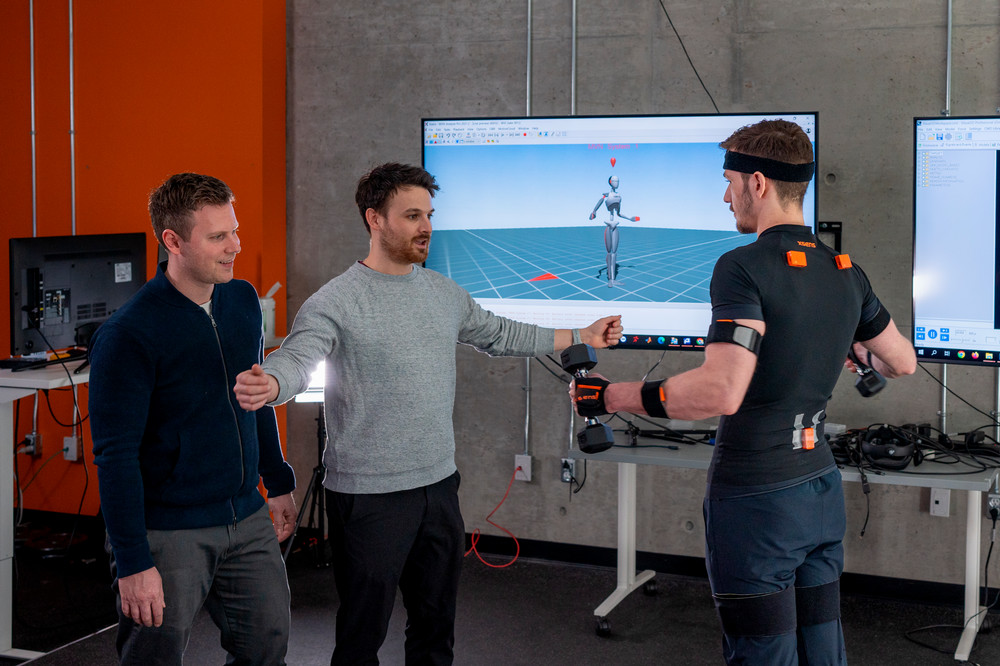
Forensic Science
Bachelor of Science (Honours)
Bachelor of Science and Management (Honours)
Forensic Science
Learn what it's like to be a real forensic examiner with hands-on experiential learning
- Acquire unique skills through lectures and labs in biology, chemistry and physics, allowing you to document and investigate mock crime scenes.
- Develop skills in documenting a scene, collecting evidence, writing scientific reports, DNA extractions, blood stain pattern analysis and testifying in mock court cases.
- Partnerships with local law enforcement agencies, Canadian Border Service, Centre of Forensic Sciences, Lakeridge Hospital and private laboratories.
- One of only two fully accredited Forensic Science programs in Canada.
Forensic Science Specializations
You will benefit from both a strong general scientific foundation and forensic courses. Students gain real-world experiences and unique hands-on training at the Crime Scene House, Forensic Ecology Research Facility and Forensic Teaching Laboratory.
At the end of first year, you will choose to specialize in one of the following areas:
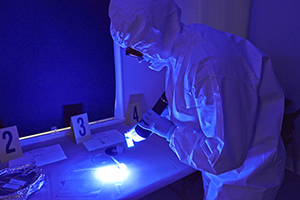
Health Administration
Bachelor of Health Administration (Honours)
Health Administration
Learn what it's like to be a real forensic examiner with hands-on experiential learning
- Acquire unique skills through lectures and labs in biology, chemistry and physics, allowing you to document and investigate mock crime scenes.
- Develop skills in documenting a scene, collecting evidence, writing scientific reports, DNA extractions, blood stain pattern analysis and testifying in mock court cases.
- Partnerships with local law enforcement agencies, Canadian Border Service, Centre of Forensic Sciences, Lakeridge Hospital and private laboratories.
- One of only two fully accredited Forensic Science programs in Canada.
Forensic Science Specializations
You will benefit from both a strong general scientific foundation and forensic courses. Students gain real-world experiences and unique hands-on training at the Crime Scene House, Forensic Ecology Research Facility and Forensic Teaching Laboratory.
At the end of first year, you will choose to specialize in one of the following areas:

Health Sciences
- Human Health Science
- Public Health
Bachelor of Health Science (Honours)
Health Sciences
The increasing complexity of health sciences and the health-care industry has placed a growing importance on the skills required of health-care professionals. You will acquire the foundations for excellence in clinical practice along with the lifelong learning, research, teamwork and leadership skills essential for a successful career in the health field.
This program has an interdisciplinary focus, weaving together physiological, sociological and epidemiological perspectives on major health issues.
Students entering their second year of Health Sciences (Human Health, Public Health, or Health Administration) are eligible to acquire a Minor in Legal Studies from the Faculty of Social Sciences and Humanities.
Two specializations are offered:
Human Health Science
You will learn the fundamental areas of science related to human health and disease, including anatomy and physiology, pathophysiology, microbiology and neurophysiology.
Public Health
Public Health considers health from the perspective of communities—from a neighbourhood to national and international levels. You will learn about the health status of populations, inequities in health, determinants of health and illness, strategies for health promotion, disease and injury prevention, health protection and factors that influence the delivery and use of health services.
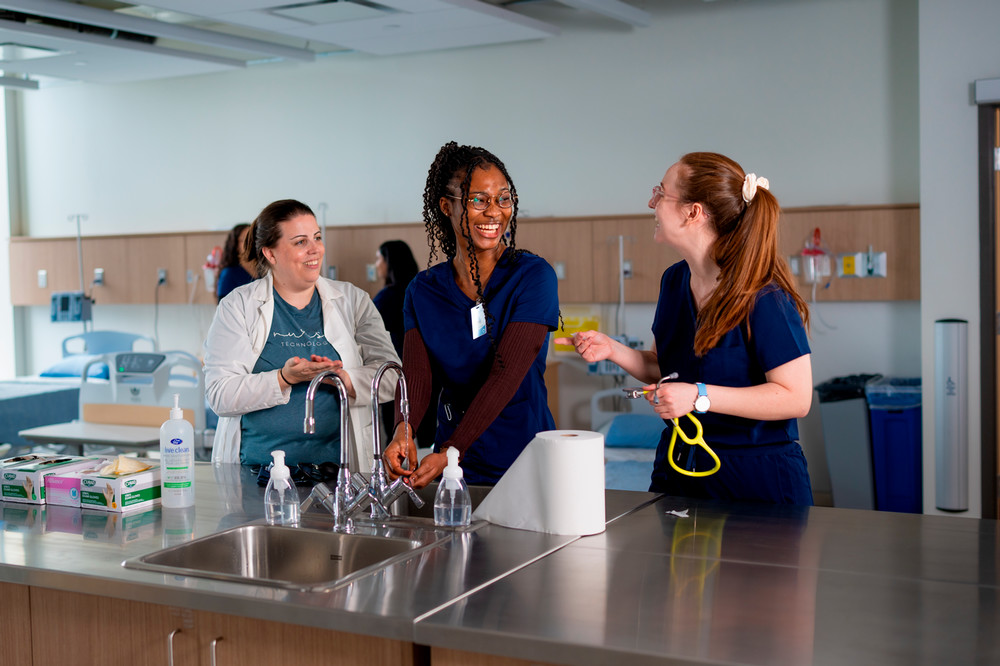
Specializations:
- Human Health Science
- Public Health
Human Health Science
Bachelor of Health Science (Honours)
Human Health Science
In the Human Health Science specialization, you will learn the fundamental areas of science related to human health and disease, including anatomy and physiology, pathophysiology, microbiology and neurophysiology.
Individuals interested in this specialization will apply directly to Human Health Science through the Ontario Universities' Application Centre using application code DHH.
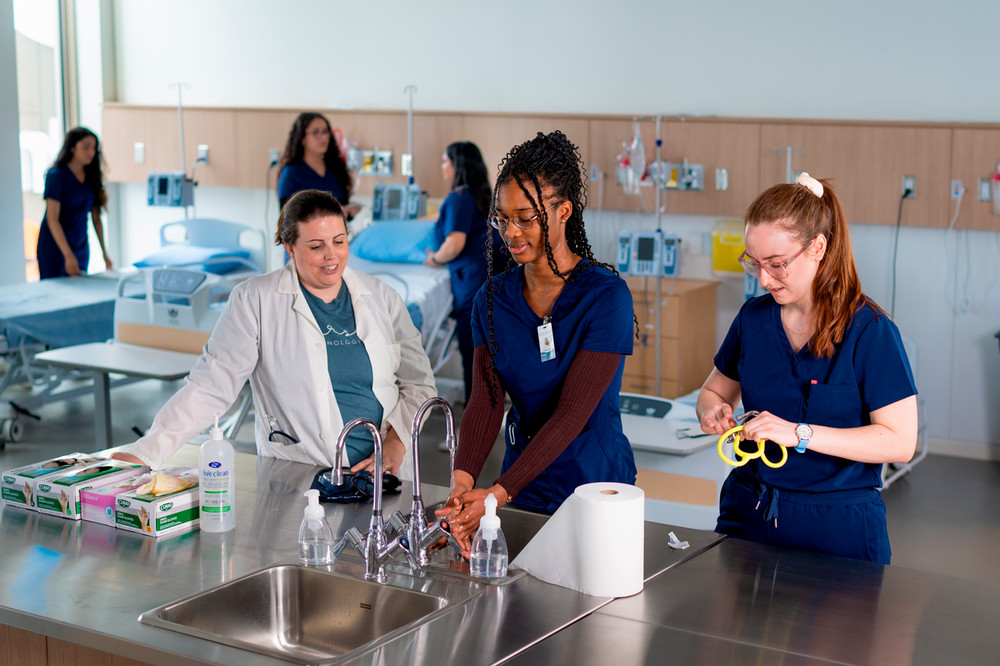
Kinesiology
Bachelor of Health Science (Honours)
Kinesiology
Kinesiology focuses on human movement and optimizing performance and quality of life. This comprehensive program covers the behavioural, biomechanical, physiological and psychosocial aspects of human health and performance. Knowledge is applied to several settings including rehabilitation, adapted physical activity, sport, exercise and general health in people of varying abilities. You will be prepared for provincial and national professional examinations.
You may pursue the comprehensive program or a specialization in:
Learning environment
You will have access to new, modern buildings, libraries and innovative labs including the Kinesiology Teaching Laboratory.
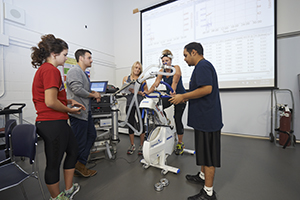
Medical Laboratory Science
Bachelor of Health Science (Honours)
Medical Laboratory Science
Modern health care has become increasingly dependent on complex laboratory tests—the results of which aid in the diagnosis, monitoring and treatment of disease. You will gain fundamental knowledge and skills in biological, physical and health sciences. The medical laboratory science-specific courses cover five laboratory disciplines: biochemistry, hematology, histotechnology, microbiology and transfusion science.
This program is accredited by EqualTM Canada, and upon successful completion, you will be eligible to write the Canadian Society for Medical Laboratory Science “General MLT” certification examination. To practice as an MLT in Ontario (and other regulated Canadian jurisdictions), graduates of the program must, in addition to completion of the CSMLS certification exam, meet the standards set by the College of Medical Laboratory Technologists of Ontario, including obtaining a criminal record and judicial matters or vulnerable sector check. Please see the following websites for additional information regarding the requirements for practicing as an MLT in Canada. www.csmls.org; www.cmlto.com.
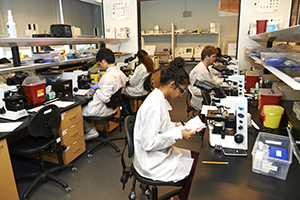
Neuroscience

Bachelor of Science (Honours)
Bachelor of Science and Management (Honours)
Bachelor of Science with Co-op (Honours)
Neuroscience
- Understand the function on the nervous system at the molecular, structural, behavioural and cognitive levels.
- Hands-on experiential learning opportunities in the lab.
- Discover how the nervous system is linked to movement, behaviour and disease, study how various pharmaceutical drugs affect the nervous system and learn how neuroscience can help us understand animal behaviour.
Neuroscience program options
This program offers a unique interdisciplinary approach to the study of neuroscience, with an emphasis on strong foundational science and practical laboratory skills.
Taught by area experts from the Faculties of Science, Health Science and Social Science and Humanities, you'll study the nervous system at the cellular level, understand its influences on functional circuits at the macroscopic level and learn how this forms the basis of behaviour, movement and neurological diseases. You will explore neuroscience from an evolutionary perspective, including a comparative analysis of the nervous system and behaviour among different animal groups. Your understanding of the function of the nervous system at the molecular, structural, behavioural and cognitive levels will be developed through interdisciplinary study and hands-on laboratory learning in the sciences.
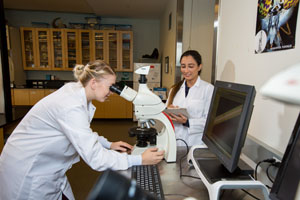
Nursing - Collaborative
Bachelor of Science in Nursing (Honours)
Nursing - Collaborative
Our program prepares nurses who are committed to excellence and innovation in assessing and meeting the nursing needs of society. You will learn about
Collaborative learning activities allow you to take an active role in your own learning. In addition, our high- tech nursing labs and simulated learning opportunities provide you with practical, hands-on experience with the latest technology at your fingertips.
Graduates of the program are eligible to write the National Council Examination-Registered Nurse (NCLEX-RN). Individuals must comply with the registration requirements of the College of Nurses of Ontario (CNO).
This program is offered in partnership with Durham College.
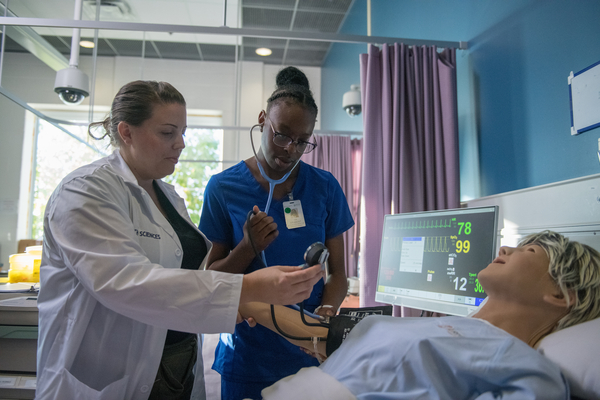
Pharmaceutical Chemistry

Bachelor of Science (Honours)
Bachelor of Science and Management (Honours)
Bachelor of Science with Co-op (Honours)
Pharmaceutical Chemistry
Pharmaceutical Chemistry combines the study of drug discovery and development, pharmacology, analytical techniques and drug chemistry. The chemical design process and evaluation of potential future medications will be a prime focus of your studies. You will apply knowledge gained from course material, hands-on lab experiences and faculty research to the pharmaceutical industry.
The Pharmaceutical Chemistry specialization can be taken with the Chemistry program.
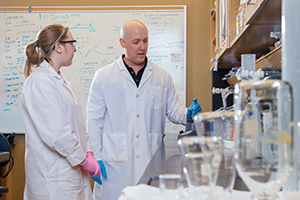
Public Health
Bachelor of Health Science (Honours)
Public Health
Public Health considers health from the perspective of communities—from a neighbourhood to national and international levels.
You will learn about the health status of populations, inequities in health, determinants of health and illness, strategies for health promotion, disease and injury prevention, health protection, and factors that influence the delivery and use of health services.
Individuals interested in this specialization will apply directly to Public Health through the Ontario Universities' Application Centre using application code DHU.
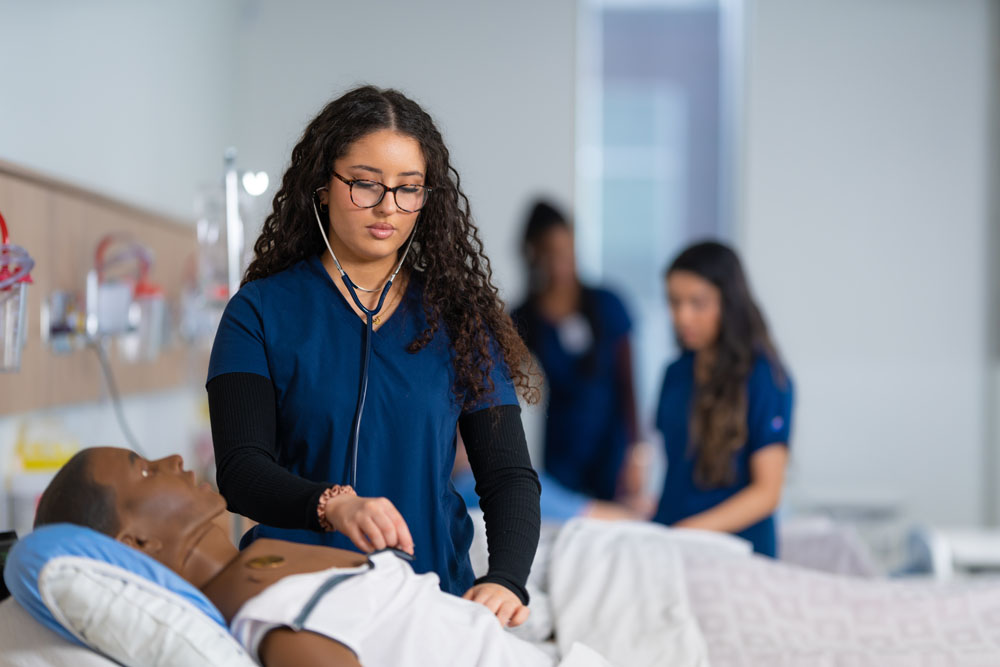
Psychology (Bachelor of Science)
Bachelor of Science (Honours)
Psychology (Bachelor of Science)
Does the chronic use of drugs lead to permanent changes in the brain? How do modern pharmaceuticals help treat the symptoms of anxiety and depression? How do traumatic events influence a child’s development?
Students enrolled in the Bachelor of Science in Psychology program will receive a core first year of natural science courses, including biology, chemistry, physics, math and psychology with their second year reserved for foundational psychology courses. Students will also be required to take a number of additional science electives in their upper years of study. This program will be of particular interest to students wishing to pursue studies in the cognitive and biological underpinnings of human behaviour.
Students will receive a solid foundation in research methods and statistics as well as highly marketable skills in a variety of tech-focused domains. The knowledge students will gain from this program will put them in a strong position for additional education or direct-to-work opportunities in areas such as medicine, health care, social services and mental health.
Three specializations are offered:
Affective Science and Mental Health
Students will receive targeted education pertaining to the psychological and neural mechanisms underlying emotion, and the manner in which these mechanisms contribute to mental health or mental illness.
Cognitive and Brain Sciences
This specialization offers in-depth exploration of mental processes and neural mechanisms through cutting-edge research and hands-on learning. Students gain expertise in cognitive functions, brain imaging techniques and the application of cognitive theories to real-world problems.
Developmental and Psychological Science
Students will gain in‐depth knowledge into historical and contemporary trends regarding human development, from infancy and childhood, through adolescence, and into adulthood and gerontology.
Unique to all specializations will be the intentional cross‐cutting of traditional disciplinary and methodological lines, to bring students in contact with a variety of sociological, criminological, psychological and biological perspectives.
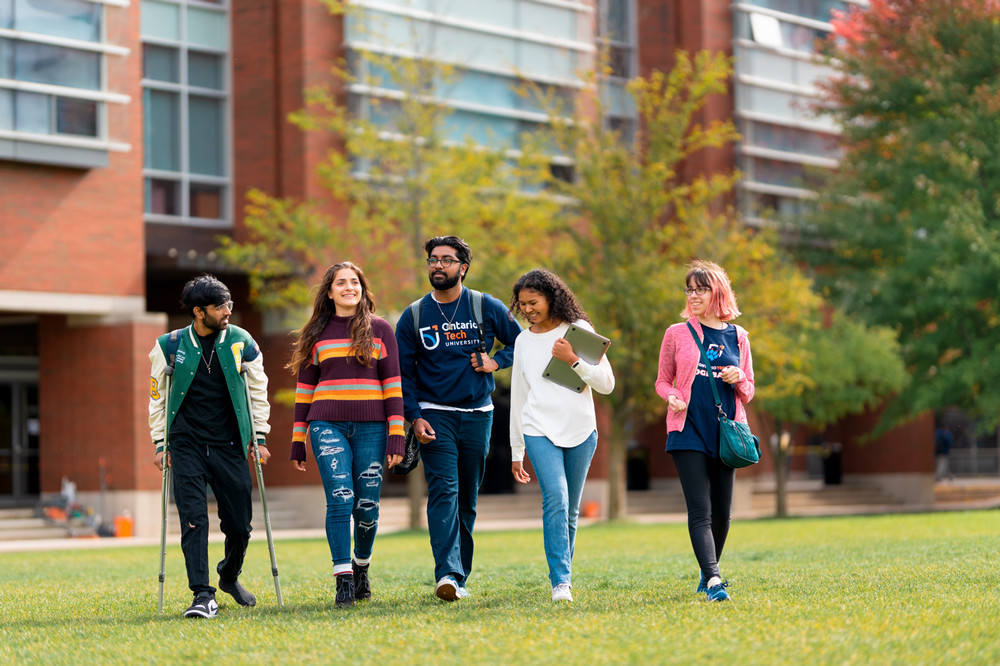
Psychology (Bachelor of Arts)
Bachelor of Arts (Honours)
Psychology (Bachelor of Arts)
Do groups of people make better decisions than individuals? How do clinicians diagnose mental illness in children and adults? Can we empathize equally with people from different cultural backgrounds?
Students enrolled in the Bachelor of Arts in Psychology program will receive a core first year of social science courses with their second year reserved for foundational psychology courses. Students will also be required to take a number of additional social science electives in their upper years of study. This program will be of particular interest to students wishing to pursue studies in the social, personality and developmental characteristics of human behaviour.
Students will receive a solid foundation in research methods and statistics as well as highly marketable skills in a variety of tech-focused domains. The knowledge students will gain from this program will put them in strong positions for additional education or direct-to-work opportunities in areas such as business, community development, advocacy, public policy, security and marketing.
Three specializations are offered:
Affective Science and Mental Health
Students will receive targeted education pertaining to the psychological and neural mechanisms underlying emotion, and the manner in which these mechanisms contribute to mental health or mental illness.
Cognitive and Brain Sciences
This specialization offers in-depth exploration of mental processes and neural mechanisms through cutting-edge research and hands-on learning. Students gain expertise in cognitive functions, brain imaging techniques and the application of cognitive theories to real-world problems.
Developmental and Psychological Science
Students will gain in‐depth knowledge into historical and contemporary trends regarding human development, from infancy and childhood, through adolescence, and into adulthood and gerontology.
Unique to all specializations will be the intentional cross‐cutting of traditional disciplinary and methodological lines, to bring students in contact with a variety of sociological, criminological, psychological and biological perspectives.

Co-op 
These programs offer a co-op option. If you’re interested, select the co-op program on your application. More at ontariotechu.ca/co-op.
Courses
Want to see the specific courses you’ll be taking in your program? Visit ontariotechu.ca/calendar.College-to-university transfer programs
Turn an Ontario college diploma (or equivalent) into a degree in as little as two years. See which programs are available to you at ontariotechu.ca/pathways.
